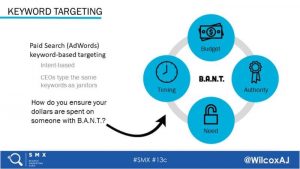
Recently, I attended MarketingProfs’ annual B2B Marketing Forum event, where I had the pleasure of seeing Tim Washer’s presentation on applying improvisation principles to marketing. Tim recommended we “follow the fear,” a concept that struck a chord with me for two reasons: first, because in-person events often scare introverts like me senseless (and I appreciated the empathy), and secondly, because I agree that facing the things that hold us back can actually lead us to become better as marketers.
Sometimes we hide behind technology, or cling to existing ROI metrics instead of exploring new measures, or operate exclusively on analytics — simply out of fear of the alternatives. These comfort zones and fears can force us into major marketing mistakes that keep us from improving. I’ve highlighted three such fear-driven mistakes below, but don’t be afraid to share any observations of your own as well.
The Fear Of Marketing Without Technology:
When it comes to technology, we often plan for best-case scenarios. We think, “if everything does what it’s supposed to, good things will happen,” right? But take that tech away, and what’s left? In my opinion, the best answer comes from Marvel’s Avengers where Steve Rogers (Captain America) poses a similar question to Tony Stark (Iron Man), “Big man in a suit of armor. Take that away, what are you?” As Stark swiftly replies, “Uh, genius, billionaire, playboy, philanthropist…” he also succinctly sums up how even the most advanced technology is only an enhancement to what’s already there — be it your underlying strategy, or your own unique brand or voice.
As we see in new marketing automation research, Best-in-Class firms drastically separate themselves from their peers by having firmly established processes and foundations in place which technology only amplifies. As the report found, 74% of Best-in-Class firms using marketing automation have well defined lead management processes in place with a range of some automation to complete automation of these processes, compared to only 43% of Average firms, and 15% of Laggards.
- The key here is to have processes, plans, and strategies in place in order to use technology as an amplifier – not just an excuse. After all, if your marketing tech is taken away, what are you?
The Fear Of Changing ROI To Reflect Different Marketing Functions:
Content marketing research shows it takes an average of ten marketing touches to progress a net-new prospect into a closed-won opportunity, but how much of this buyer’s journey falls exclusively on your shoulders? Is your highest level of contribution as a marketer in creating the content itself for these touches? Is it in strategically organizing and structuring the content across the buyer’s whole experience? Are you responsible for distributing the content, or setting it up with automated triggers in a campaign? Or are you most adept at measuring and optimizing the whole process?
These questions reveal key distinctions when it comes to determining the ROI of your marketing efforts, as both investments and returns vary depending on the functions performed, and the resulting values delivered. As Christopher Penn, Vice President of Marketing Technology for SHIFT Communications explained in his B2B Forum presentation, The ROI of Content Marketing, each funnel stage can have a measurable value of its own: audience growth at the top-funnel stage, lead generation at mid-funnel, and closed sales at the bottom-funnel stage. If your measure of ROI isn’t aligned to the correct marketing function, you may not only be operating on bad data, you may also be diminishing the overall productivity of you and/or your team.
- The main takeaway is to ensure the efforts you’re investing in are both measured and optimized for delivering the right value. Set the right expectations for what your efforts deliver at each stage in the journey. A solid eBook will not drive straight revenue, but it certainly can help expand your marketable audience, for example.
The Fear Of What’s Unknown Without Analytics:
As creative a field as marketing is, there’s still a lot of analytical, formulaic thinking required. As a balance to wild, unrestricted creativity, analytical mindsets can be extremely valuable, but sometimes, the scales can tilt too far towards the left brain. If you had an extremely successful campaign in the past, for example, you’d naturally want to break down what worked and why, and repeat those patterns moving forward. There’s a point, though, where things get dangerous – kind of like an analytical addition – and you can’t help but look into data on everything (even down to the specific words in each sentence of a content asset) in order to try to engineer the perfect marketing formula.
Unfortunately, there’s often a law of diminishing return that applies in such scenarios where analytical efforts become purely descriptive of what happened and not prescriptive of future success. In such analytical inward spirals, it’s easy to lose sight of your most important point of reference in marketing – your buyer. No matter how perfect your past results have been, they mean nothing if they don’t align to the present needs, interests, or expectations of your target audience. In fact, customer experience management research shows that when analytics are actually focused on customers, businesses achieve distinct competitive advantages in customer lifetime value, cross-sell and up-sell revenue, and even overall year-over-year growth.
- The point – don’t create situations of analysis paralysis for yourself. Measure the customer-oriented things that worked (and didn’t work) in the past, while still making room for future inspired moments that keep you honest, human, and relevant in the eyes of your buyers.
All too often, we do what we do out of fear, not out of mindful decision-making. These are only a few examples, but the more we expose the things that hold us back – without being afraid of how it might reflect on us – the better we can all become as marketers. If you have any personal experiences or insights on mistakes you’ve encountered that hold marketers back, please don’t be afraid to share your thoughts in the comments below.
Business Articles | Business 2 Community
(307)






